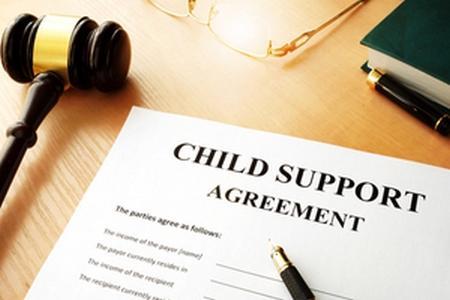Recent Blog Posts
Is It Possible for an Unmarried Father to Have Shared Custody in Wisconsin?
 Few changes have the potential to affect a man like becoming a father for the first time. If you have recently discovered that you are or will be a father, congratulations - now is the time to start thinking about establishing a legal relationship with your child so you can ensure you have the best chance of developing a lifetime of love and support. Wisconsin law recognizes the importance of fathers in the development of a minor child’s health and well-being and encourages fathers to be present in their child’s life whenever possible. To learn more about father’s custodial rights in Wisconsin, read on.
Few changes have the potential to affect a man like becoming a father for the first time. If you have recently discovered that you are or will be a father, congratulations - now is the time to start thinking about establishing a legal relationship with your child so you can ensure you have the best chance of developing a lifetime of love and support. Wisconsin law recognizes the importance of fathers in the development of a minor child’s health and well-being and encourages fathers to be present in their child’s life whenever possible. To learn more about father’s custodial rights in Wisconsin, read on.
Establish Paternity
The most important thing you can do when initiating a case for child custody or placement is to establish that you are, in fact, the father of the child. You can do this using a Voluntary Acknowledgement of Parentage when a child is born. If your child’s mother does not cooperate, you can also establish paternity through a court order, often using a DNA test.
Will a Drug Crime Conviction Mean I Go to Jail in Wisconsin?
 Public perception of drug use in America has changed rapidly over the last ten years or so. As more states legalize medical marijuana and even the federal government moves towards treating drug addicts rather than penalizing them, society’s understanding of drug use has relaxed.
Public perception of drug use in America has changed rapidly over the last ten years or so. As more states legalize medical marijuana and even the federal government moves towards treating drug addicts rather than penalizing them, society’s understanding of drug use has relaxed.
Unfortunately, many states still have harsh laws that are a holdover from America’s infamous “War on Drugs” period. Mandatory minimum sentencing, large fines, and other punitive measures were meant to prevent drug use and distribution. As overdose deaths continue to skyrocket, these measures appear to have failed in their intent and instead have left many lives ruined by impractical punishments. Recognizing this, Wisconsin allows judges to consider deferred prosecution, probation, and other types of alternative sentences to allow citizens charged with drug crimes to properly make amends without completely derailing their lives.
Can Previous Convictions Affect My Criminal Sentence in Wisconsin?
 While the criminal justice system in Wisconsin is supposed to be fair and objective, the truth is that it can be difficult to predict exactly what the consequences will be for a specific criminal conviction. Judges often have some discretion when it comes to sentencing, and a previous criminal conviction may impact a judge’s willingness to be generous or forgiving with a defendant. Other factors, like gang involvement or the specific location of a crime, can require a harsher sentence. If you have been charged with criminal conduct, it is important to have a criminal defense attorney help you understand what issues may increase your punishment.
While the criminal justice system in Wisconsin is supposed to be fair and objective, the truth is that it can be difficult to predict exactly what the consequences will be for a specific criminal conviction. Judges often have some discretion when it comes to sentencing, and a previous criminal conviction may impact a judge’s willingness to be generous or forgiving with a defendant. Other factors, like gang involvement or the specific location of a crime, can require a harsher sentence. If you have been charged with criminal conduct, it is important to have a criminal defense attorney help you understand what issues may increase your punishment.
What Factors Can Increase a Criminal Sentence?
Before you are sentenced for a crime, you must either take a plea deal or be proven guilty by a jury of your peers. It is essential to have a criminal defense attorney with either option, because an attorney can work out a defense strategy that gets you a better plea bargain or cause the jury to doubt your guilt.
Five Types of Electronic Identity Theft in Wisconsin
 The internet is a prominent part of our everyday lives. Many people turn to the internet when they have questions, want to purchase something online, or become interested in connecting with other people through various social media platforms. Additionally, with the increase in remote workspaces and work-from-home lifestyles, more and more people are using the internet on a daily basis.
The internet is a prominent part of our everyday lives. Many people turn to the internet when they have questions, want to purchase something online, or become interested in connecting with other people through various social media platforms. Additionally, with the increase in remote workspaces and work-from-home lifestyles, more and more people are using the internet on a daily basis.
Unfortunately, some internet users find themselves facing criminal charges for electronic identity theft. If you or a loved one were charged with identity theft or another computer-related crimes, contact an attorney for help.
What is Electronic Identity Theft?
Electronic identity theft is the act of stealing identifiable information about other people by way of the internet using electronic devices. The term refers to a criminal act in which thieves are able to access personal information, including debit card PINs and Social Security numbers, with the intention of stealing someone’s identity.
Can I Move If I Have Joint Custody of My Child in Wisconsin?
 When parents become interested in the idea of moving elsewhere, they often have a lot to consider before finalizing their decision and relocating. Parents do not only have themselves to think about. They must also consider how moving might impact the lives of their children.
When parents become interested in the idea of moving elsewhere, they often have a lot to consider before finalizing their decision and relocating. Parents do not only have themselves to think about. They must also consider how moving might impact the lives of their children.
While this is true for all parents, adults who have a child custody agreement have a few more details to keep in mind when thinking about moving to a new city, town, state, or country. There are often parameters set in place regarding the relocation of parents who share joint custody of their children.
Today, we are exploring whether or not a parent with joint custody in Wisconsin can legally move when and where they please.
Wisconsin State Law Regarding Custodial Parent Relocation
Custody agreements legally define parental responsibilities and the amount of time that each parent is expected to allocate towards the care of their child or children. Joint custody entails that two divorced parents share time with their child or children.
How Long Does a Divorce Take in Waukesha County?
 If you are planning to get a divorce in Wisconsin, you may be wondering how long the process takes. From filing the paperwork and negotiating divorce issues, to finalizing the divorce and everything in between, there are many steps involved in divorce proceedings. While the exact timeline of your divorce will vary depending on the specifics of your situation, here is a general idea of how long a Wisconsin divorce takes.
If you are planning to get a divorce in Wisconsin, you may be wondering how long the process takes. From filing the paperwork and negotiating divorce issues, to finalizing the divorce and everything in between, there are many steps involved in divorce proceedings. While the exact timeline of your divorce will vary depending on the specifics of your situation, here is a general idea of how long a Wisconsin divorce takes.
Filing the Initial Divorce Paperwork
In Wisconsin, there is a mandatory waiting period of 120 days between the divorce filing date and the point at which the divorce is finalized. The purpose of this waiting period is to provide the two people pursuing a divorce with time to think about their decision.
A waiting time ensures that spouses are not legally dissolving their marriage as part of a rash decision. The 120-day waiting period also allows each of the divorce lawyers representing the parties to prepare for settlement negotiations or trial.
Modifying Child Support and How it is Done in Wisconsin
 Coming to a mutual child support agreement is challenging for both parents, and modifying that same arrangement can be problematic. Not only are changes difficult, but the timing of those revisions needs to be considered. Under Wisconsin law, noncustodial parents are obligated to make child support payments until the child is 18 years old, or 19 if the child is still in high school or working towards their GED. Knowing when to make changes to a Child Support Order and how to go about it are crucial, so is understanding how to receive your owed support from a non-compliant noncustodial parent.
Coming to a mutual child support agreement is challenging for both parents, and modifying that same arrangement can be problematic. Not only are changes difficult, but the timing of those revisions needs to be considered. Under Wisconsin law, noncustodial parents are obligated to make child support payments until the child is 18 years old, or 19 if the child is still in high school or working towards their GED. Knowing when to make changes to a Child Support Order and how to go about it are crucial, so is understanding how to receive your owed support from a non-compliant noncustodial parent.
When Can Changes in the Child Support Agreement be Made?
In Wisconsin, there is a 33-month waiting period before any modifications can be made to the initial child support agreement. Rare exceptions can be made if there is a significant change in circumstances, including a change in either parent’s income, health needs of the child changing, or either parent being placed in jail. A few misconceptions about what constitutes a change in the agreement include failing to follow visitation rules, the custodial parent legally moving with the child, or either parent voluntarily leaving their job. Changes in the child support agreement can only occur once every three years, and the court will determine whether or not if a review will be ordered.
Understanding Domestic Violence Charges in Waukesha County
 A domestic violence-related conviction may carry severe penalties, including prison time and fines. Offenders may also be subject to a protective order. Having a conviction on your record can seriously damage your reputation. Thankfully, everyone is innocent until proven guilty, and people charged with a crime have rights.
A domestic violence-related conviction may carry severe penalties, including prison time and fines. Offenders may also be subject to a protective order. Having a conviction on your record can seriously damage your reputation. Thankfully, everyone is innocent until proven guilty, and people charged with a crime have rights.
What to Do If You Are Accused of Domestic Battery
Your decisions in the immediate aftermath of a domestic battery charge are critical and may make the difference between conviction and exoneration. Here are three pieces of advice:
Watch What You Say - Be very careful with your words, especially when talking to the police or the victim. Your words can and will be used against you. If you are taken into police custody, the police may try to get you to make confessions or admit guilt. Remember, you have the right to remain silent and consult with legal counsel.
What to Know About Marijuana Laws in Waukesha, Wisconsin
 For years, marijuana usage was strictly illegal throughout the United States. The buying and selling of the narcotic were considered a serious criminal offense that would often land the offender in jail. Now, marijuana dispensaries can be found in many large cities around the country and possessing small quantities of the plant is no longer considered a criminal offense in many states. However, marijuana is still a controlled substance in the Badger State and the cultivation, possession, or sale of the drug can trigger harsh criminal penalties.
For years, marijuana usage was strictly illegal throughout the United States. The buying and selling of the narcotic were considered a serious criminal offense that would often land the offender in jail. Now, marijuana dispensaries can be found in many large cities around the country and possessing small quantities of the plant is no longer considered a criminal offense in many states. However, marijuana is still a controlled substance in the Badger State and the cultivation, possession, or sale of the drug can trigger harsh criminal penalties.
Penalties for Marijuana Possession
In the State of Wisconsin, a first-time offense for possession of marijuana is a first-degree misdemeanor. Offenders may face a maximum jail sentence up to six months and a maximum fine of $1,000. A subsequent offense for possession is charged as a felony. Offenders may spend up to 3.5 years behind bars and maximum fines up to $10,000.
How Is a 401(k) Divided in Divorce?
 Divorce is stressful. Even in the best of circumstances, the process is filled with tension and drama. Simply separating from a person that you shared a life with for years can be heart-wrenching, even if it is necessary. There are also practical components that are just as challenging. The lives of spouses are intertwined not only emotionally, but financially as well. The disentangling of financial interests is frequently a source of tension during separation, especially if a 401(k) plan is present.
Divorce is stressful. Even in the best of circumstances, the process is filled with tension and drama. Simply separating from a person that you shared a life with for years can be heart-wrenching, even if it is necessary. There are also practical components that are just as challenging. The lives of spouses are intertwined not only emotionally, but financially as well. The disentangling of financial interests is frequently a source of tension during separation, especially if a 401(k) plan is present.
Who retains the benefit of a 401(k) is a deeply personal issue; after all, it is often essential to both parties’ quality of life post-retirement.
Wisconsin Law establishes how retirement plans, such as pensions and 401(k)s, are divided by the court during divorce.
Is a 401(K) Marital Property?
What percentage of the 401(k) each party gets to keep largely hinges on what portion of it is marital property.









 262-232-6699
262-232-6699





